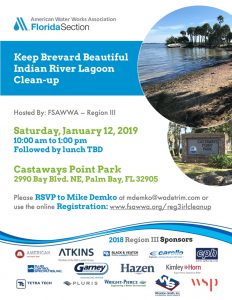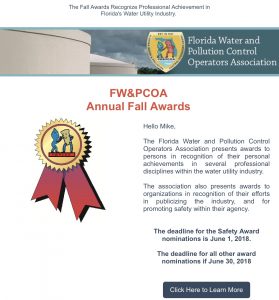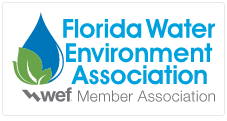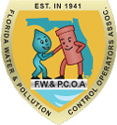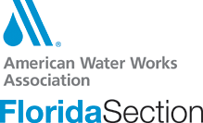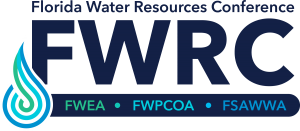Category Archives: Announcements
Water Research Foundation Releases Proposals for Reuse Projects
The Water Research Foundation (WRF) has an- nounced that requests for proposals (RFPs) and arequestforqualifications(RFQ)areavailable for four new research projects under the Ad- vancing Potable Reuse Initiative. These RFPs and RFQ are funded through WRF and the State Water Resources Control Board in California (SWB).
The projects are:
“Compiling Evidence of Pathogen Reduction
Through Managed Aquifer Recharge and Re- covery”(4957).Thegoalistodocumentand quantify performance of pathogen reduction through groundwater based on parameters, including residence time, aquifer character- istics, temperature, source water control, and method of introduction.
“Assessing the State of Knowledge and Impacts of Recycled Water Irrigation on Agricultural Crops” (4964). The goal of the project is to investigate how and to what degree the impacts of salinity, sodium, and chloride affect growth and production of different crops, and provide management guidelines for sustainable water reuse with different crops and cropping systems.
“Identifying the Amount of Wastewater That is Available and Feasible to Recycle in California” (4962). The goals of the project are to identify the amount of treated municipal wastewater that is available for recycled water production in California, now and projected into the future, and determine how much of the treated municipal wastewater is feasible to produce and use.
“Evaluation of a Validation Protocol for Membrane Bioreactors Based on a Correlated Surrogate to Achieve Pathogen Credit for Potable Reuse” (RFQ 4959). The goal of the project is to determine if a proposed correlated surrogate validation protocol for pathogen removal from membrane bioreactors is feasible for potable reuse applications, evaluate and adapt the propose validation protocol for potential application in the United States, and develop recommendations on how to rest and potentially verify the protocol.
Proposals must be received before Jan. 22, 2019, at 2:00 p.m. Mountain Time. The proposals submitted must follow the WRF document, “Guidelines for Focus Area Program Proposals.” The guidelines contain instructions for the technical aspects, financial statements, and administrative requirements that the applicant must follow.
FW&PCOA Accepting Nominations for The Pat Robinson Scholarship Award
|
The Florida Water & Pollution Control Operators Association (FW&PCOA) is now accepting nominations for the Pat Robinson Award. The FW&PCOA Board of Directors has established a Training Scholarship, known as the Pat Robinson Award, and a Scholarship Committee to accept nominations and determine the recipients of the scholarships. The Pat Robinson Award consists of tuition waiver for attending an Annual State Short School, or an On-the-Road Short School, and/or reimbursement of documented travel costs up to $800.00.
The maximum number of Pat Robinson Awards granted each year is based on one (1) award per FW&PCOA Region. Click here for a map of the FW&PCOA Regions. The Scholarship Committee decisions will be final. The FW&PCOA has established the following eligibility criteria for the Pat Robinson Award.
Click here for the Nomination Form The deadline for nominations is December 31, 2017. |
Florida DEP Invests More Than $90 Million in Water Quality Improvement Projects
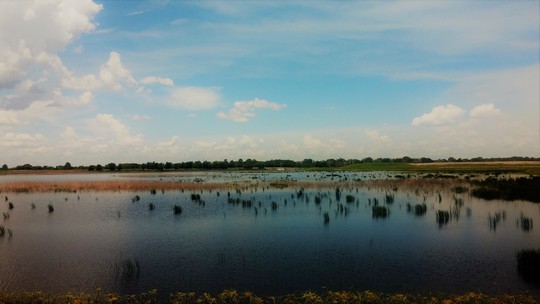
TALLAHASSEE, Fla. – The Florida Department of Environmental Protection has provided more than $90 million toward the recent completion of seven water quality improvement projects in Central and South Florida. The funding was awarded through DEP’s Division of Water Restoration Assistance’s various funding resources and programs.
“We are pleased to partner with water management districts, cities and local municipalities to fund infrastructure needs,” said Drew Bartlett, DEP deputy secretary for ecosystems restoration. “Projects ranging from septic to sewer conversions and aging pipe replacement to shoreline stabilization and nutrient reduction are vital to helping Florida’s springs, rivers and waterways meet water quality goals.”
The recently completed projects include:
Apopka: The Orange Blossom KOA septic to sewer project, funded in part by a $34,425 Florida Springs Grant to the St. Johns River Water Management District, connected the park to Apopka’s existing central sewer system, improving water quality in Lake Apopka and the Wekiva springshed.
Gasparilla Island: The Gasparilla Island reverse osmosis water treatment plant expansion project, funded in part by a $5 million Drinking Water State Revolving Fund (DWSRF) loan, expanded the capacity of the existing facility from 1.073 to 1.267 million gallons per day. Also included are two new brackish water supply wells and a raw water main to transport water from the new wells to the facility, which supplies potable water to its service area on Gasparilla Island in Lee County.
Largo: The Largo Wet Weather project, funded in part by a $73.2 million Clean Water State Revolving Fund (CWSRF) loan, upgraded and expanded the city’s sewer and reuse systems. These much-needed improvements have helped reduce sewer overflows and ensure that treated wastewater effluent meets water quality standards.
Martin and St. Lucie counties: The Caulkins Water Farm project was funded in part by a total of $1.5 million in Environmental Protection Agency’s Section 319 nonpoint source pollution grants to the South Florida Water Management District for the original pilot project, which turned former citrus groves into a reservoir. With the pilot project’s success, the reservoir was recently expanded, providing much need storage for excess stormwater from the C-44 Canal, which is linked to Lake Okeechobee. The completed project provides both water storage and a reduction in nutrient loading into the St. Lucie River and estuary.
Sebring: The Spring Lake Improvement District’s Stormwater Treatment Area project, funded in part by a total of $4.3 million in a CWSRF loan, an Environmental Protection Agency’s Section 319 nonpoint source pollution grant and a legislative appropriation, constructed a lake-wetland marsh system and expanded storage capacity for stormwater treatment. The stormwater treatment area provides additional water quality treatment benefits prior to discharge into Arbuckle Creek, a tributary of Lake Istokpoga. This water is then transported to Lake Okeechobee and ultimately, the Everglades and Florida’s sensitive Atlantic estuaries.
Stuart: The distribution system and water meter upgrade project, funded in part by a $5.8 million DWSRF loan, replaced more than 11 miles of distribution piping, converted approximately 2,500 meters and installed an emergency interconnect with the Martin County water supply system. This will improve reliability of water supply to Stuart residents.
Also in Stuart, the East Heart of Haney Creek wetlands restoration project, funded in part by $181,000 in Total Maximum Daily Load (TMDL) Water Quality Restoration grants, re-graded approximately 6 acres of an exotic-cleared area, created berms and weirs, and restored the eastern third of Heart of Haney Creek to native wetlands. Waters from the 395-acre Eastern Haney Creek watershed will now be directed through the restored wetlands before discharge to tidal Haney Creek, and ultimately the St. Lucie estuary.
For more information about the State Revolving Fund, Nonpoint Source water quality restoration grants, Florida Springs Grant Program and other funding opportunities, please visit the Division of Water Restoration Assistance.

